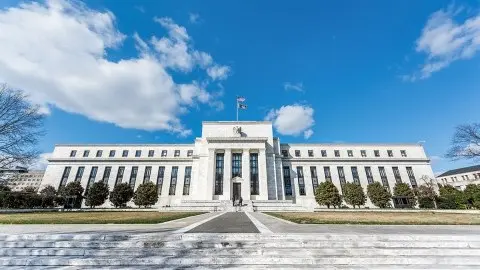Central banks talking a good game
Markets are taking heart from central bank comments, but nothing has actually been done yet, and the new case count for Covid-19 is accelerating. This doesn't feel like a rally that has solid support
Talking the virus down
The chorus of central banks saying that they “are monitoring the situation closely and stand ready to…” blah, blah, blah...is growing. After Jerome Powell came out last Friday and then was joined by the BoJ’s Kuroda on Monday, the ECB’s Christine Lagarde has now joined the fray.
Markets seem to be enjoying the rhetoric, with equity markets in the US rallying, and Asian equity futures up this morning.
It is worth pointing out that none of the central banks has done anything more than just say some words yet. And in the background, the number of new Covid-19 cases is rising faster each day. Cases in the US are also growing, with some doctors saying they don’t have the kits for testing, which if true indicates that the true count there may be much higher, or be on the cusp of rising further.
I remain sceptical that cuts, even 50bp from the Fed at their March 18 meeting, will do much to alleviate the macroeconomic consequences of a broader outbreak. As I wrote yesterday, the impact for firms is largely a cash flow crisis, not a debt service problem, and rate cuts won’t make much difference if your firm can’t produce due to supply chain problems, or staffing levels, or logistical breakdowns associated with virus disruption, lockdown or quarantines.
RBA - a tough call
The RBA is up on the blocks for possible rate action today. We didn’t forecast any change when we put our week-ahead forecasts out, though the situation is fast-moving, and we certainly don’t rule it out. Plenty of other economists are now changing their minds.
If they don’t cut, we anticipate a strong hint of imminent possible future action. But Australia, although hit hard by the China slowdown, has only 33 Covid-19 cases itself, and the China situation itself seems to be resolving.
Also, the RBA also doesn’t have an infinite arsenal of ammunition, so might want to wait to use rate cuts for more than just a two-day equity rally. This isn't about "keeping your powder dry", which is a ridiculous concept, it is about making sure you don't waste your last remaining bullets, which might be the case.
It also seems as if the government might be more disposed to finding some money to throw at this crisis, which, in our view, is likely to do more good than any rate cuts. Still, we won’t have to wait long to find out, and this decision is becoming far more finely balanced.
SE Asian central banks act where they can
Elsewhere in the region, Bank Negara Malaysia meets to decide rate policy today, and we are expecting a cut from them, more likely now given the political disruptions which means that fiscal stimulus packages that were stitched up and ready to go may now be delayed. Here is a link to the recent note by Prakash Sakpal on Malaysia’s political upheaval.
Yesterday, Indonesia’s central bank Governor, Perry Warjiyo, cut the foreign exchange reserve rate requirement for banks from 8% to 4%, which should release about $3.2bn to the economy. He also promised to intensify intervention to stabilise the bond and foreign exchange markets following recent volatility. While the IDR remains weak, the RRR route remains Warjiyo’s most likely source of stimulus rather than rate cuts.
This publication has been prepared by ING solely for information purposes irrespective of a particular user's means, financial situation or investment objectives. The information does not constitute investment recommendation, and nor is it investment, legal or tax advice or an offer or solicitation to purchase or sell any financial instrument. Read more
Download
Download opinion
3 March 2020
Central banks to the rescue This bundle contains 7 Articles